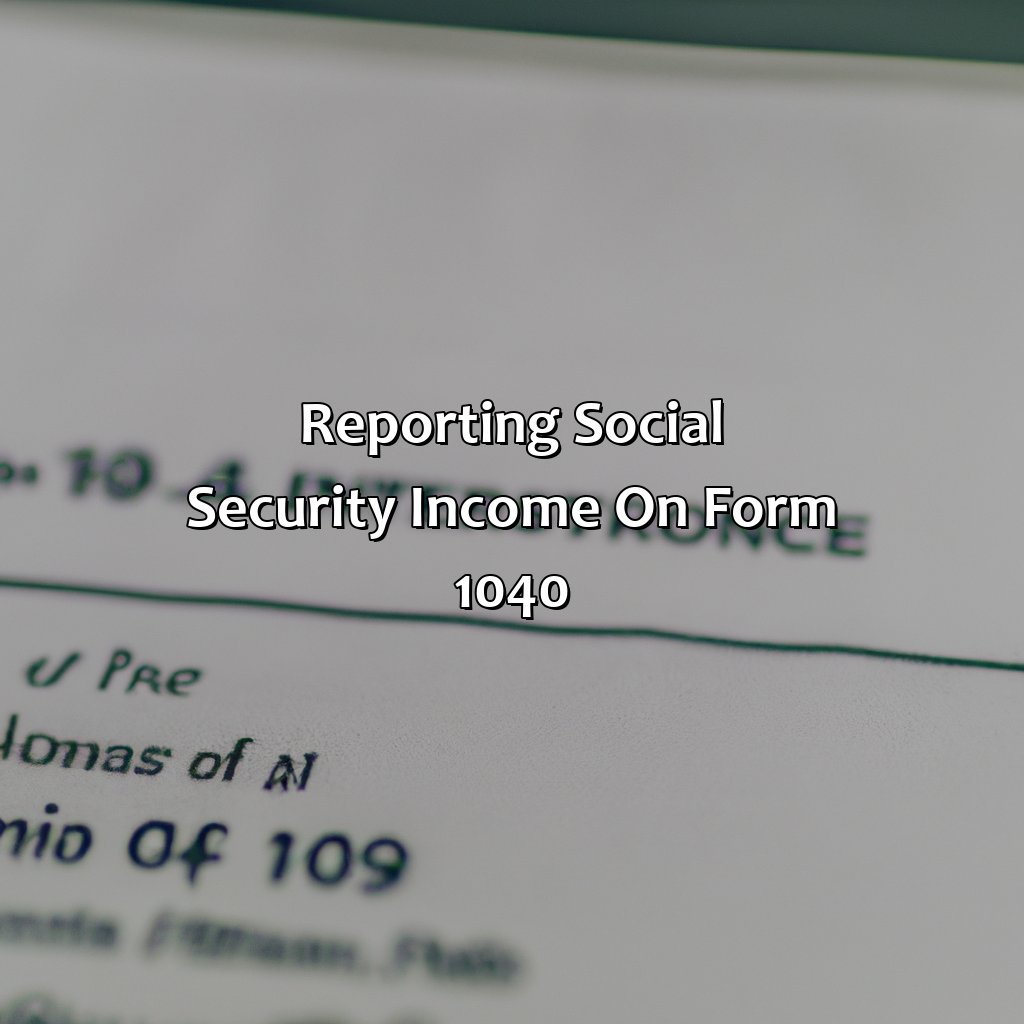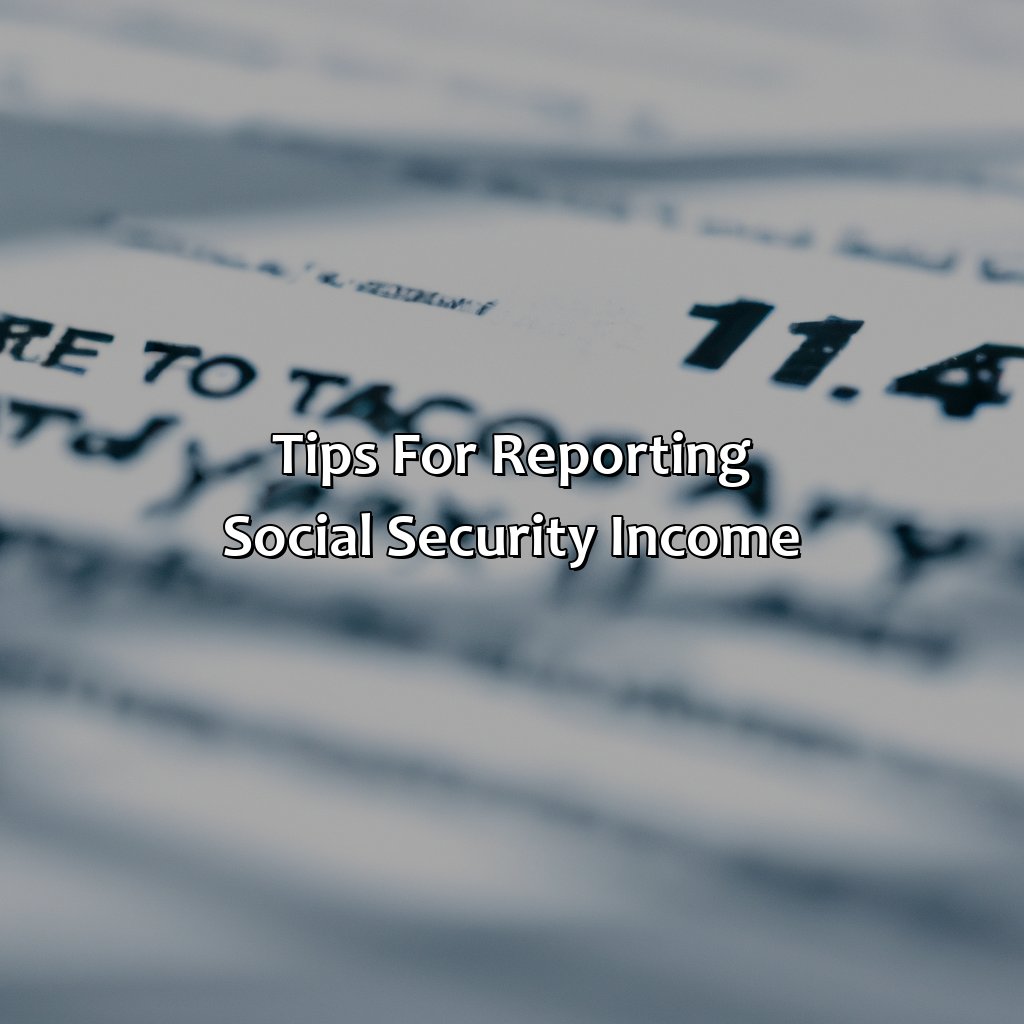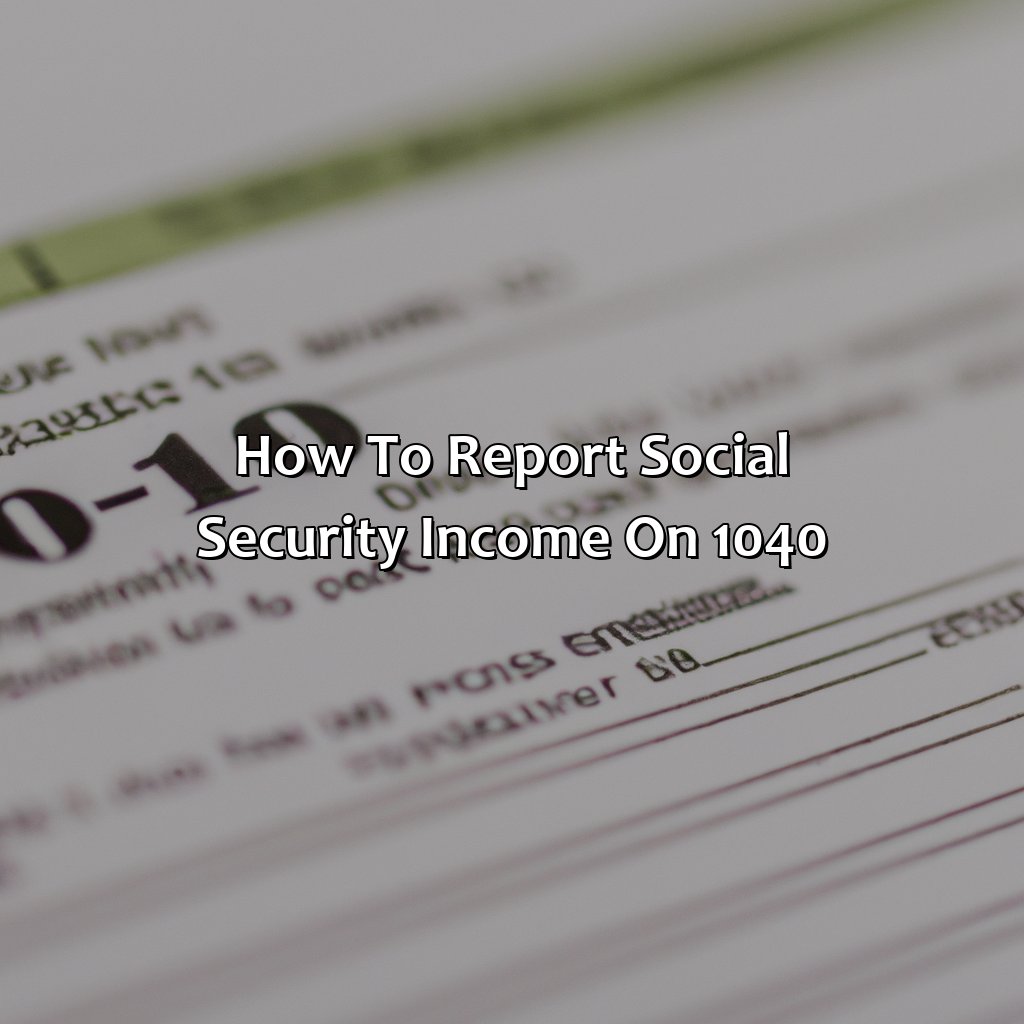How To Report Social Security Income On 1040?
Key Takeaway:
- Understand how to calculate taxable Social Security income: This involves first determining your total Social Security benefits, then calculating your “provisional income” by adding in other sources of income. Depending on your level of provisional income, up to 85% of your Social Security benefits may be taxable.
- Report Social Security income accurately on Form 1040: This is done by using a worksheet included with Form 1040 to calculate the taxable amount, then transferring that amount to the appropriate line on the form. It’s important to double-check your entries and make sure you haven’t made any errors.
- Know the tips for reporting Social Security income: It’s important to avoid common mistakes like reporting non-taxable benefits or failing to include all sources of income. You should also be aware that you may need to make estimated tax payments if you expect to owe a significant amount of tax on your Social Security benefits.
Are you confused about how to report Social Security income on your 1040 form? Don’t worry – this article will help you understand the process and make the right decision for your tax filings. You’ll be one step closer to completing your taxes with confidence and accuracy.
Reporting Social Security Income on Form 1040
Reporting Social Security Income on Form 1040 is crucial for taxpayers who receive Social Security benefits. To report these benefits, taxpayers should include the total amount received from Social Security on line 5a of Form 1040. If the recipient is married, they should also report their spouse’s Social Security income on line 5b of Form 1040.
The Internal Revenue Service (IRS) considers Social Security benefits as taxable income if recipients earn more than a certain threshold amount.
In addition, taxpayers may receive a Form SSA-1099 from the Social Security Administration. This form shows their total Social Security benefits for the year and should be used to report the income on their tax return accurately. If an individual received both Social Security benefits and other forms of income like wages, dividends, or interest, they may need to pay taxes on a portion of their Social Security benefits.
It is important to report Social Security income on Form 1040 accurately to avoid any misunderstandings or penalties by the IRS. Failure to report this income correctly could result in missing out on potential tax refunds or even facing legal repercussions. So, it is highly recommended that taxpayers report this income appropriately to save themselves from any unwanted hassles related to their tax return.

Image credits: retiregenz.com by David Duncun
Tips for Reporting Social Security Income
Tips for Handling Social Security Income on your Tax Return
When it comes to reporting social security income on your 1040 form, there are several things you should keep in mind. Here are some tips to help you handle this task with ease:
- Know what type of benefits you received: Before you report your social security income, it’s essential to understand the type of benefits you received. There are three categories of benefits: retirement, disability, and survivor benefits. Each category may have unique implications for tax purposes.
- Check if your social security income is taxable: Not all social security income is taxable. If social security is your only source of income, you might not have to pay taxes on it. However, if you have other sources of income, you may have to pay taxes on a portion of your social security income.
- Be aware of the rules for married couples: Married couples have some unique rules when it comes to social security taxes. If both partners receive social security benefits, their combined income will determine if they need to pay taxes on their benefits.
- Know how to calculate the taxable amount of your benefits: If you determine that you need to pay taxes on a portion of your social security income, you’ll need to know how to calculate that amount. The IRS provides worksheets to help you with this calculation.
It’s crucial to keep in mind that the rules around social security income and taxes can be complicated. If you’re not sure how to report your social security income accurately, consider consulting a tax professional.
It’s worth mentioning that social security income can be a vital source of income for many seniors. In some cases, it may be the difference between making ends meet and struggling to pay bills. Reporting social security income accurately helps ensure you receive the benefits you’re entitled to, while also paying the appropriate taxes.

Image credits: retiregenz.com by Yuval Duncun
Five Facts About How To Report Social Security Income on 1040:
- ✅ Social security income is reported on line 5a of Form 1040 for the tax year 2020. (Source: IRS)
- ✅ If you received more than $25,000 in social security benefits for the tax year, a portion may be taxable. (Source: AARP)
- ✅ The amount of social security income that is taxable is determined by your combined income, which is your adjusted gross income plus nontaxable interest plus half of your social security benefits. (Source: TurboTax)
- ✅ You may be required to file a tax return and pay taxes on your social security income if your combined income exceeds the threshold amount for your filing status. (Source: SSA)
- ✅ If you received social security benefits and worked in the same tax year, you may need to file Form SSA-1099 in addition to your regular tax return. (Source: Investopedia)
FAQs about How To Report Social Security Income On 1040?
How do I report my social security income on my 1040?
You report your social security income on Line 5a of your 1040 tax form. This is the total amount of social security benefits you received during the tax year.
Do I have to pay taxes on my social security income?
It depends on your income level. If your income exceeds a certain limit ($25,000 for individuals, $32,000 for joint filers), then a portion of your social security benefits may be taxable.
Do I have to report my spouse’s social security income on my 1040?
No, you do not have to report your spouse’s social security income on your 1040. Each spouse should file their own tax return and report their own social security income.
What if I received social security disability benefits?
Disability benefits are reported the same way as regular social security benefits. You will report the total amount on Line 5a of your 1040 tax form.
Is social security income exempt from state taxes?
It depends on the state. Some states exempt social security income from state taxes, while others tax a portion of it. Check with your state’s tax agency for more information.
Where can I get help with reporting my social security income on my 1040?
You can consult with a tax professional or use tax preparation software to help you correctly report your social security income on your 1040 tax form.


